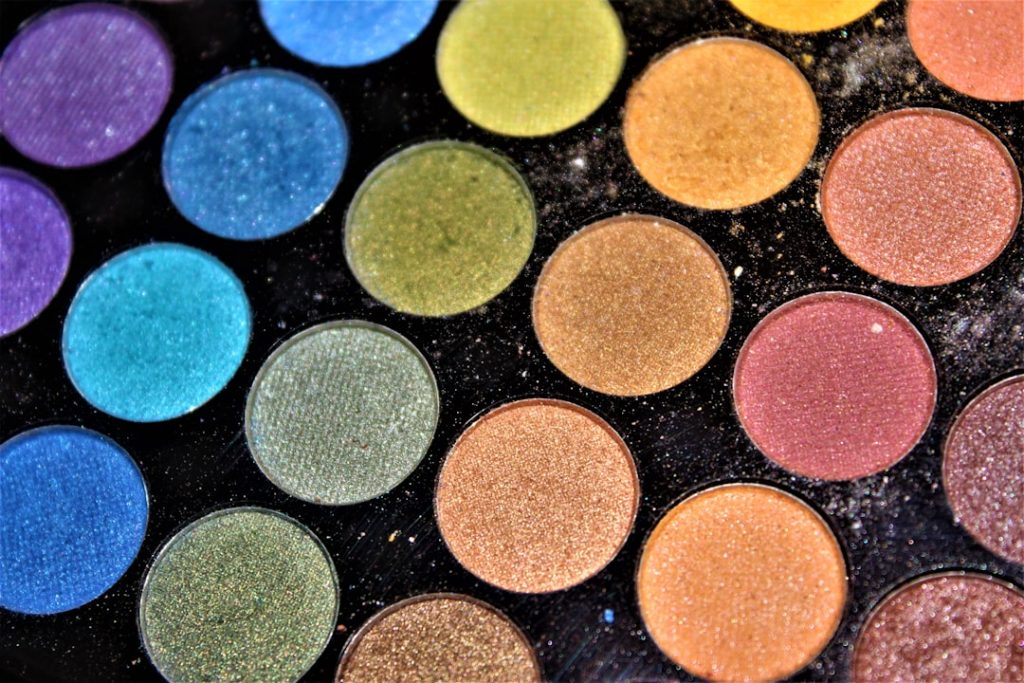Extreme heat can significantly impact chickens, affecting their health, well-being, and productivity. Chickens are particularly vulnerable to high temperatures due to their lack of sweat glands, relying instead on panting to regulate body temperature. When temperatures exceed their comfort zone, chickens may experience heat stress, leading to various health issues including dehydration, reduced egg production, and potential death.
During hot periods, chickens may display signs of distress such as panting, lethargy, decreased feed intake, and lower egg production. Severe cases can result in heat stroke, which can be fatal if not addressed quickly. It is vital for chicken owners to understand these effects and take preventive measures.
To mitigate the impact of extreme heat, chicken owners should provide shade, shelter, adequate ventilation, cool treats, and access to fresh water. These measures can help chickens cope with high temperatures and reduce the risk of heat-related health problems. Recognizing signs of heat stress in chickens is crucial for their welfare.
By understanding the effects of high temperatures on chickens and implementing appropriate strategies, owners can help maintain their flock’s health and productivity even during scorching weather conditions.
Table of Contents
- 1 Providing shade and shelter for chickens
- 2 Ensuring adequate ventilation in the chicken coop
- 3 Offering cool and refreshing treats for chickens
- 4 Providing access to fresh, cool water at all times
- 5 Monitoring and adjusting feeding schedules during extreme heat
- 6 Recognizing signs of heat stress in chickens and taking appropriate action
- 7 FAQs
- 7.1 What are some signs that chickens are overheated?
- 7.2 How can I keep my chickens cool in extreme heat?
- 7.3 What are some tips for providing shade for chickens?
- 7.4 How often should I change my chickens’ water in extreme heat?
- 7.5 Are there specific breeds of chickens that are better suited for extreme heat?
Key Takeaways
- Extreme heat can have a significant impact on chickens, leading to heat stress and decreased egg production.
- Providing shade and shelter is crucial to protect chickens from the direct sun and high temperatures.
- Adequate ventilation in the chicken coop is essential to prevent heat buildup and maintain a comfortable environment.
- Offering cool treats such as frozen fruits and vegetables can help chickens stay hydrated and cool during hot weather.
- Access to fresh, cool water at all times is vital to prevent dehydration and heat stress in chickens.
- Monitoring and adjusting feeding schedules during extreme heat can help prevent digestive issues and maintain chicken health.
- Recognizing signs of heat stress in chickens, such as panting and reduced activity, and taking appropriate action, such as providing cooling measures or seeking veterinary care, is crucial for their well-being.
Providing shade and shelter for chickens
Creating Shaded Areas
One of the most effective ways to help chickens cope with extreme heat is by providing ample shade and shelter in their environment. Shade can help reduce the direct exposure to sunlight and lower the ambient temperature, providing chickens with a cooler and more comfortable space to rest and seek refuge from the heat. Chicken owners can create shaded areas in the chicken coop or run using tarps, umbrellas, or natural vegetation such as trees or shrubs.
Ensuring Proper Ventilation
It is important to ensure that the shaded areas are well-ventilated to allow for airflow and prevent the buildup of heat. In addition to shade, providing adequate shelter is crucial for protecting chickens from the harsh effects of extreme heat. A well-ventilated coop with proper insulation can help maintain a comfortable temperature for chickens even during hot weather. Chicken owners should ensure that the coop is well-ventilated to allow for air circulation and prevent the buildup of heat and humidity. Installing fans or vents can help improve airflow and reduce the risk of heat stress in chickens.
Combining Shade and Shelter for Optimal Comfort
By providing shade and shelter, chicken owners can create a more comfortable environment for their flock and help them cope with the challenges of extreme heat. Providing shade and shelter is essential for helping chickens cope with extreme heat. Shade can help reduce direct exposure to sunlight and lower the ambient temperature, providing chickens with a cooler and more comfortable space to rest and seek refuge from the heat. Additionally, providing adequate shelter in the form of a well-ventilated coop with proper insulation can help maintain a comfortable temperature for chickens even during hot weather.
Ensuring adequate ventilation in the chicken coop

Proper ventilation is essential for maintaining a comfortable environment for chickens during periods of extreme heat. Adequate airflow helps prevent the buildup of heat and humidity in the coop, reducing the risk of heat stress in chickens. Chicken owners should ensure that the coop is well-ventilated by installing windows, vents, or fans to promote air circulation.
It is important to position vents or windows strategically to allow for cross ventilation and prevent hot air from getting trapped inside the coop. In addition to promoting air circulation, proper ventilation can also help reduce the concentration of airborne pathogens and ammonia in the coop, improving overall air quality and reducing the risk of respiratory issues in chickens. Regular cleaning and maintenance of the coop can also contribute to better ventilation by preventing the accumulation of dust, debris, and waste that can impede airflow.
By ensuring adequate ventilation in the chicken coop, chicken owners can create a healthier and more comfortable environment for their flock, helping them cope with extreme heat more effectively. Proper ventilation is crucial for maintaining a comfortable environment for chickens during periods of extreme heat. Adequate airflow helps prevent the buildup of heat and humidity in the coop, reducing the risk of heat stress in chickens.
Chicken owners should ensure that the coop is well-ventilated by installing windows, vents, or fans to promote air circulation. It is important to position vents or windows strategically to allow for cross ventilation and prevent hot air from getting trapped inside the coop. In addition to promoting air circulation, proper ventilation can also help reduce the concentration of airborne pathogens and ammonia in the coop, improving overall air quality and reducing the risk of respiratory issues in chickens.
Regular cleaning and maintenance of the coop can also contribute to better ventilation by preventing the accumulation of dust, debris, and waste that can impede airflow. By ensuring adequate ventilation in the chicken coop, chicken owners can create a healthier and more comfortable environment for their flock, helping them cope with extreme heat more effectively.
Offering cool and refreshing treats for chickens
During periods of extreme heat, offering cool and refreshing treats can help chickens stay hydrated and cool down. Water-rich fruits and vegetables such as watermelon, cucumber, and lettuce can provide chickens with essential hydration while also offering a refreshing treat. Frozen treats such as ice cubes or frozen berries can also be given to chickens to help lower their body temperature and provide relief from the heat.
In addition to fruits and vegetables, offering electrolyte supplements in the form of water additives or treats can help replenish essential nutrients lost through panting and sweating during hot weather. Electrolytes can help maintain proper hydration levels and support overall health and well-being in chickens during periods of extreme heat. By offering cool and refreshing treats, chicken owners can help their flock stay hydrated and comfortable even in sweltering temperatures.
During periods of extreme heat, offering cool and refreshing treats can help chickens stay hydrated and cool down. Water-rich fruits and vegetables such as watermelon, cucumber, and lettuce can provide chickens with essential hydration while also offering a refreshing treat. Frozen treats such as ice cubes or frozen berries can also be given to chickens to help lower their body temperature and provide relief from the heat.
In addition to fruits and vegetables, offering electrolyte supplements in the form of water additives or treats can help replenish essential nutrients lost through panting and sweating during hot weather. Electrolytes can help maintain proper hydration levels and support overall health and well-being in chickens during periods of extreme heat. By offering cool and refreshing treats, chicken owners can help their flock stay hydrated and comfortable even in sweltering temperatures.
Providing access to fresh, cool water at all times
Access to fresh, cool water is essential for chickens during periods of extreme heat. Chickens rely on water for hydration, thermoregulation, digestion, and overall health maintenance. It is crucial for chicken owners to ensure that their flock has access to clean and cool water at all times, especially during hot weather when water consumption increases.
To keep water cool during hot weather, chicken owners can use shaded waterers or add ice cubes to the water containers to lower its temperature. Regularly checking waterers for cleanliness and refilling them with fresh water is important to prevent contamination and ensure that chickens have access to clean drinking water at all times. By providing access to fresh, cool water, chicken owners can help their flock stay hydrated and healthy even in extreme heat.
Access to fresh, cool water is essential for chickens during periods of extreme heat. Chickens rely on water for hydration, thermoregulation, digestion, and overall health maintenance. It is crucial for chicken owners to ensure that their flock has access to clean and cool water at all times, especially during hot weather when water consumption increases.
To keep water cool during hot weather, chicken owners can use shaded waterers or add ice cubes to the water containers to lower its temperature. Regularly checking waterers for cleanliness and refilling them with fresh water is important to prevent contamination and ensure that chickens have access to clean drinking water at all times. By providing access to fresh, cool water, chicken owners can help their flock stay hydrated and healthy even in extreme heat.
Monitoring and adjusting feeding schedules during extreme heat

Adjusting Feeding Schedules
To mitigate this effect, chicken owners can offer smaller but more frequent meals throughout the day to encourage feed consumption while minimizing digestive strain on chickens.
Providing a Balanced Diet
In addition to adjusting feeding schedules, it is essential to provide a balanced diet that meets the nutritional needs of chickens during hot weather. Feeding high-quality feed with adequate protein content can support overall health and immune function in chickens during periods of extreme heat. Supplementing with vitamins or electrolytes may also be beneficial in supporting chickens’ health during hot weather.
Maintaining Optimal Nutrition
Monitoring feeding behavior and adjusting feeding schedules as needed is crucial for supporting chickens’ health and well-being during periods of extreme heat. By providing a balanced diet and adjusting feeding schedules as needed, chicken owners can help their flock maintain optimal nutrition levels even in sweltering temperatures.
Recognizing signs of heat stress in chickens and taking appropriate action
It is important for chicken owners to recognize the signs of heat stress in their flock and take appropriate action to mitigate its effects. Common signs of heat stress in chickens include panting, lethargy, reduced feed intake, decreased egg production, pale combs/wattles, drooping wings, and increased water consumption. If left unaddressed, heat stress can lead to dehydration, overheating, organ failure, or even death.
When signs of heat stress are observed in chickens, it is crucial for chicken owners to take immediate action to help their flock cool down and recover from the effects of extreme heat. This may include providing access to shade, cool water, electrolyte supplements, cool treats, adjusting feeding schedules as needed, ensuring proper ventilation in the coop, or even using misters or fans to lower ambient temperatures. In severe cases of heat stress or heat stroke, it is important for chicken owners to seek veterinary care promptly to provide their flock with appropriate medical attention.
By recognizing signs of heat stress in chickens and taking proactive measures to address it promptly, chicken owners can help their flock stay healthy and resilient even in challenging weather conditions. It is important for chicken owners to recognize the signs of heat stress in their flock and take appropriate action to mitigate its effects. Common signs of heat stress in chickens include panting, lethargy, reduced feed intake, decreased egg production, pale combs/wattles, drooping wings, and increased water consumption.
If left unaddressed, heat stress can lead to dehydration, overheating, organ failure or even death. When signs of heat stress are observed in chickens it is crucial for chicken owners to take immediate action to help their flock cool down and recover from the effects of extreme heat. This may include providing access to shade cool water electrolyte supplements cool treats adjusting feeding schedules as needed ensuring proper ventilation in the coop or even using misters or fans to lower ambient temperatures.
In severe cases of heat stress or heat stroke it is important for chicken owners to seek veterinary care promptly to provide their flock with appropriate medical attention By recognizing signs of heat stress in chickens taking proactive measures to address it promptly chicken owners can help their flock stay healthy resilient even in challenging weather conditions
If you’re looking for more information on keeping chickens cool in extreme heat, you might be interested in this article on chicken coop design in Muskegon. It offers tips and advice on creating a comfortable and safe environment for your chickens during hot weather.
FAQs
What are some signs that chickens are overheated?
Some signs that chickens are overheated include panting, holding their wings away from their bodies, reduced egg production, and lethargy.
How can I keep my chickens cool in extreme heat?
You can keep your chickens cool in extreme heat by providing plenty of shade, ensuring they have access to fresh, cool water at all times, using fans or misters in the coop, and offering frozen treats such as fruits and vegetables.
What are some tips for providing shade for chickens?
You can provide shade for chickens by using tarps, umbrellas, or natural shade from trees or shrubs. It’s important to make sure the shade is well-ventilated and allows for airflow.
How often should I change my chickens’ water in extreme heat?
In extreme heat, you should change your chickens’ water at least twice a day to ensure it stays cool and fresh. Adding ice to the water can also help keep it cool for longer.
Are there specific breeds of chickens that are better suited for extreme heat?
Yes, some breeds of chickens are better suited for extreme heat, such as the Leghorn, Rhode Island Red, and Sussex. These breeds are known for their heat tolerance and ability to thrive in hot climates.
Meet Walter, the feathered-friend fanatic of Florida! Nestled in the sunshine state, Walter struts through life with his feathered companions, clucking his way to happiness. With a coop that’s fancier than a five-star hotel, he’s the Don Juan of the chicken world. When he’s not teaching his hens to do the cha-cha, you’ll find him in a heated debate with his prized rooster, Sir Clucks-a-Lot. Walter’s poultry passion is no yolk; he’s the sunny-side-up guy you never knew you needed in your flock of friends!







